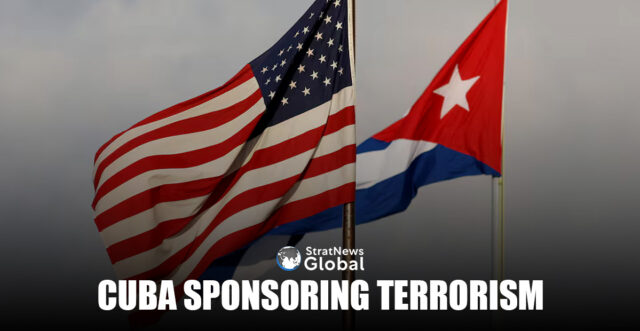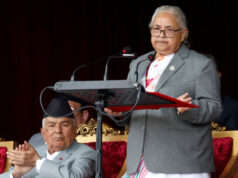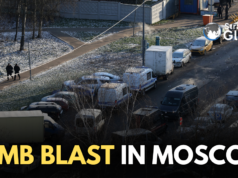Cuba’s reprieve from the U.S. list of state sponsors of terrorism was short-lived as Donald Trump, the 47th President of America, revoked Biden administration’s last-minute decision just hours after his inauguration on Monday, the White House said.
Trump signed a so-called “rescission” of then-President Joe Biden’s January 14 move that would have lifted the Communist-ruled island’s designation as a terrorism-sponsoring nation.
Deja Vu For Cuba?
Trump’s decision, among dozens of revocations of what the incoming White House deemed “harmful” orders and actions by his Democratic predecessor, effectively keeps Cuba on a list that the Republican President himself placed Cuba on at the end of his first term in 2021.
Biden’s announcement last week, which was accompanied by Cuba’s agreement to free over 500 prisoners from its jails, seemed to be aimed at rolling back many of the sanctions put in place by Trump during his previous four years in office.
Cuban President’s Reaction
Cuban President Miguel Diaz-Canel responded on social media late on Monday, calling Trump’s decision to revoke Biden’s measures an “act of mockery and abuse”.
Trump Move Likely To Jeopardize Progress
Cuba, which has always steadfastly denied any support for terrorism, had begun releasing a small number of prisoners as part of a broader plan negotiated with the Vatican.
But with Trump’s decision, it was unclear whether those releases would continue.
Removal of Cuba from the terrorism list would have eased related sanctions on an island already suffering a deep economic crisis.
Biden had also revoked a 2017 Trump order that restricted financial transactions with some military- and government-linked Cuban entities, according to a senior administration official.
In addition, Biden last week sought to prevent individuals from filing lawsuits against both Cuban entities and foreign companies under the Helms-Burton Act over property seized following Fidel Castro’s 1959 revolution, the official said.
It was not clear whether Trump, a harsh Cuba critic who had worked during his first term to reverse Obama-era detente with Havana, would now allow those lawsuits to continue.
Cuba’s Reaction To Biden’s Announcement
Last week, Cuba’s government had called Biden’s announcement a step in the “right direction,” but accused the U.S. of continued “economic warfare” against the island, since the Cold War-era U.S. trade embargo against Cuba remained.
Many, if not all of the prisoners released last week were arrested in association with unprecedented anti-government protests that took place in July 2021, the largest protests since Fidel Castro’s 1959 revolution.
The U.S., European Union and human rights groups had criticized Cuba’s response to the protests as repressive and heavy-handed.
(With inputs from Reuters)





